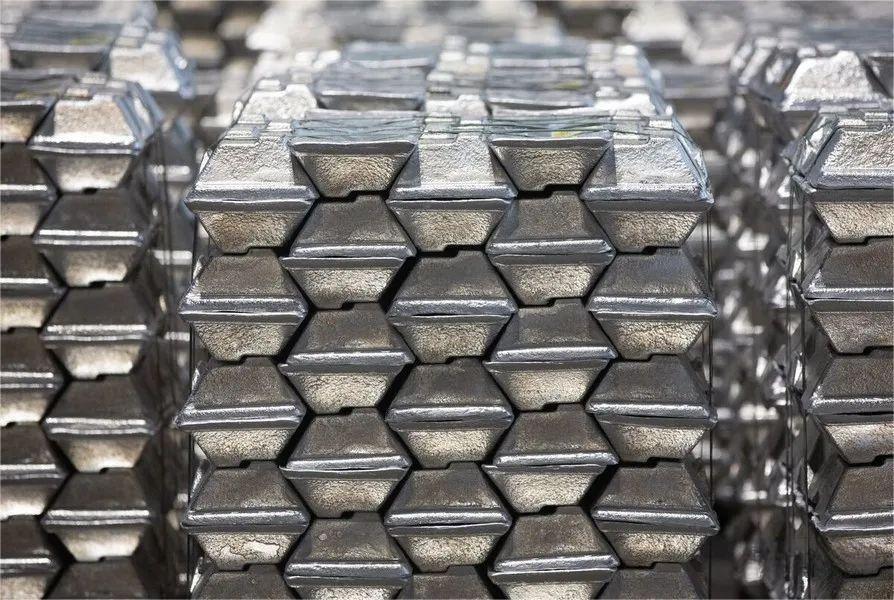Industry news
Media: Global economic warning signals have emerged! Global commodity prices are falling!
Commodity prices, including crude oil and iron ore, have declined this year, signaling global economic weakness and recession risks. Global commodities have fallen by over 25% in the past 12 months, as reflected by the Standard & Poor's GSCI Commodity Index, which serves as a benchmark for measuring the overall performance of various commodity markets.
Among different types of commodities, industrial metals have dropped by 3.79% during this period (as of June 30), while energy commodities such as oil and natural gas have experienced a significant decline of 23%. On the contrary, agricultural products like grains, wheat, and sugar have seen an increase of approximately 11%.
However, according to observations from CNBC International, the decline in the commodity index could be attributed to the global economic slowdown and the loss of momentum in China's recovery following the COVID-19 pandemic.
"Iron ore and copper are good indicators of the highly cyclical parts of the global economy, including construction and manufacturing, which have experienced declines in many places," said Reid I'Anson, Senior Commodity Analyst at Kpler, in an interview with CNBC International on Monday (July 5).
"I think that will filter through to broader economic activity declines, especially in the West," added I'Anson.
He expects that the United States may see a contraction in its gross domestic product (GDP) in either the fourth quarter of this year or the first quarter of 2024, with Europe following suit in the next three to six months.
"The lack of delivery in terms of China meeting market expectations is probably the biggest driver for the commodity market struggling to find a footing," continued I'Anson.
Many economic data released by China have shown weaker-than-expected performance, attributed to the sluggish state of the economy after reopening following strict lockdowns during the COVID-19 pandemic.
Analysts from Bank of America have also confirmed that the strength of China's economic recovery has been below expectations.
"Particularly for real estate, investment is down 7% year-on-year," said Matty Zhao, Head of APAC Basic Materials and Energy Research.
The decline in the real estate market is often associated with a decrease in demand for construction materials like steel, aluminum, copper, and nickel.
The downturn in China's real estate market is expected to persist for several years. I'Anson noted that the Chinese government does not seem to be inclined to introduce large-scale fiscal stimulus plans. Even if they were to do so, he said, "The stimulus plan would have to be large enough to make a profound impact on the market at this current time."

Despite the rise in soft commodities prices, the outlook for agricultural production is affected by the El Niño phenomenon, while energy and industrial metals commodities are weakening.
Among the commodities that have declined, iron ore and oil are the biggest losers. Kpler also mentioned the dim prospects for copper, which is often seen as an economic proxy as it has various uses in power equipment and industrial machinery production.
Oil prices have experienced a significant drop, with Brent crude prices down by 34.76% year-on-year, despite OPEC production cuts having little impact.
The softness in European energy consumption is partly due to a milder winter, leading to natural gas inventories reaching the highest level in the past five years and putting pressure on gas prices.
Additionally, China, as the world's largest oil importer, has increased coal production amid a power crisis.
However, Mr. Zhao predicts that energy prices may recover in the second half of this year if extreme cold weather events occur.
Furthermore, Bank of America Merrill Lynch notes that the average prices of steel and iron ore have decreased by 16% year-on-year, reflecting subdued construction demand. The subdued construction demand is also evident in other building materials such as cement, with supply levels reaching 75%.
Iron ore, primarily used in steel manufacturing, is a key raw material for construction and engineering projects.
"Overall, many major commodities have fallen in the past few months as businesses and consumers reduce demand in the face of potential economic risks," said Jim Wiederhold, Director of Commodities and Real Assets at S&P Dow Jones Indices.
Wiederhold continues to state that commodity prices also tend to move with changes in inflation. If inflation continues to decline, the commodity market may see further declines in the short term.
However, according to the International Monetary Fund (IMF) forecast, major global inflation is expected to decline from 8.7% in 2022 to 7% in 2023.
RELATED NEWS
- Trump Raises Steel and Aluminum Tariffs to 25%: Impact on Global Trade and the A 2025-02-14
- Many countries have recently adjusted import tariffs, and foreign trade may rema 2024-03-26
- Photovoltaic frames and brackets are affected! The U.S. Department of Commerce r 2024-03-21
- Important benefits for the Australian market! Import tariffs on nearly 500 items 2024-03-14
- Ghana government proposes ban on bauxite exports 2024-02-29
CATEGORIES
LATEST NEWS
CONTACT US
Contact: Manager:Miss Jasmien
Phone: +8618825429836
E-mail: info@gdaa-cn.com
Whatsapp:+8618825429836
Add: Headquarter:No.8,Yixian Road,GDAA Mansion,Guangfo Zhicheng, Dali Town,Foshan,Guangdong.China
